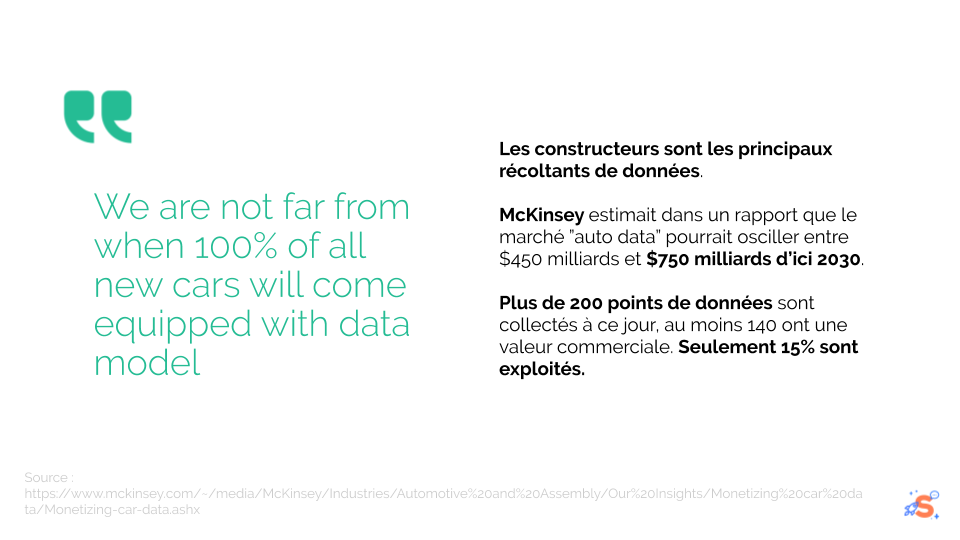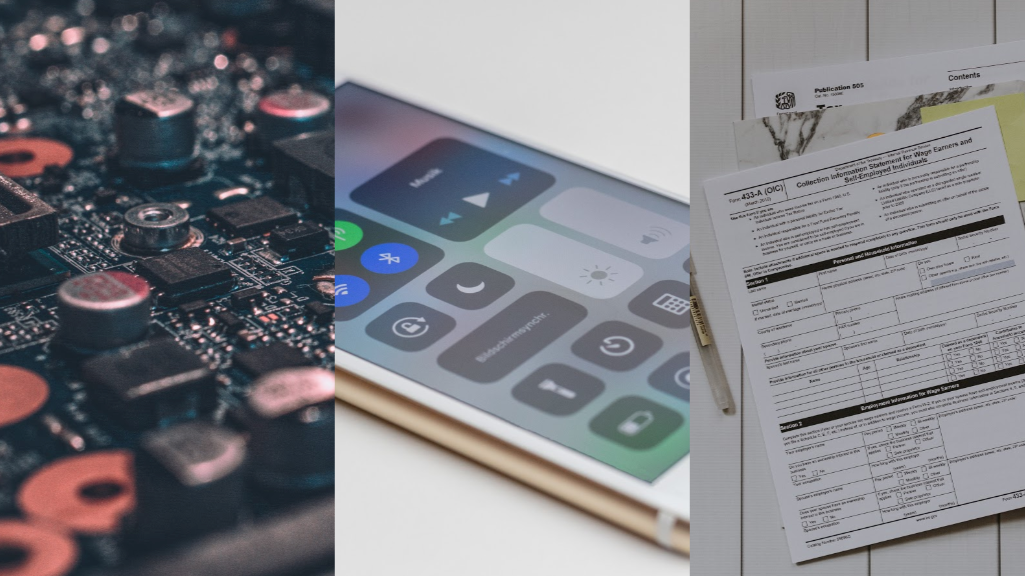In 2019, I was asked to develop use cases around blockchain for the Cap'Tronic program. Funded by CEA and Bpifrance, Cap'Tronic organise workshops around new technology where specialists comes and share with the company members insight from new tech, what can be done and ask Q&A around their respective topics. I was invited to talk about blockchain technology following my use case developped for EDF and the Région Pays de la Loire for E.V. charging in shared space such as residences.
In 2016, ⅕ cars sold worldwide could be plugged to internet. By 2020, it will be ¾ of them.
The only data considered as "personal data" and falling under consumer protection are:
- blackbox data (the last seconds before an accident):
- speed
- seatbelt buckled or another
So only cops, judge, law enforcement can access those data. But what about
- LiDAR data
- obstacle detection data
- car diagnostic data
- hands on wheel position
- eye movment of the driver
- electronic payment at toll
- telematic such onStar system
- infotainment usage data
- passengers and driver weight
- car's internet cell data
- all data from smartphones connected by cable or bluetooth to the cars

We are not far from when 100% of all new cars will come equipped with data model
Car manufacturers are the main data collector heres. Mc Kinsey estimate the auto data market can reach between $450 billion and $750 billion in 2030. More than 200 data points are collected everyday, and at least 140 of them have a commercial value. But only 15% are used.
How to share those data between all the actors and users ?
It will require hardware, software, and a lot of legal paperwork. But it's not impossible. Because, so far, there's no enable to create new services. No percieve benefit for the end user; the scope is too narrow; how data is collected and aggregated is completly hidden.
.png)
Blockchain, as a communication enabler
Why it will change everything? It will benefit everyone, without discrimination; it will be transparent by design; it will be open to everyone (eventually).
What are the use cases ?
- Car sharing, with vehicules which are no one property
- Toll payment, road usage and convoy
- E.V. charging, shared charging and grid services
- Usage based insurance
- Leasing & financing based on the Usage
- Digital Ledger for service book and car identity
- Preventing kilometric fraud
- Freight and tracking
- Vehicule datapoint sharing, marketplace
- Safer OTA update for vehicule, especially autonomous ones
Mobility wallet
Usage based & Autonomy
Fraud prevention
.png)
How does it create value?
It create an ecosystem
One of the biggest restraint so far is the fact that data are in proprietary silos, hidden from everyone. We need to open it, using a teechnology standard to facilitate information exchange. It's also a completly new paradigm, fairer, where the data producer can finaly take advantage from his activity.
Real time
Data freshness will be a key enabler for designing new services and product. At a global scale. No need to rely on outdated data generated hours ago.
Secure and sustainable
No central and hegemonic authority, information is more fluid, visible to all, unalterable and cannot be taken offline by an actor who would like to stop playing the game.
There's already big player in the competition
Without any big surprise, car manufacturers lire Renault, Toyota, Daimler are already on it. Visa, as a payment provider is looking after it. Some big Blockchain solution providers such BigchainDB, IOTA, Omnichain and, of course, some market initiative such VX Network.
.png)
My complete keynote
Want to know more ? Have question? Let's chat! Just hit the "Get in Touch" button below

